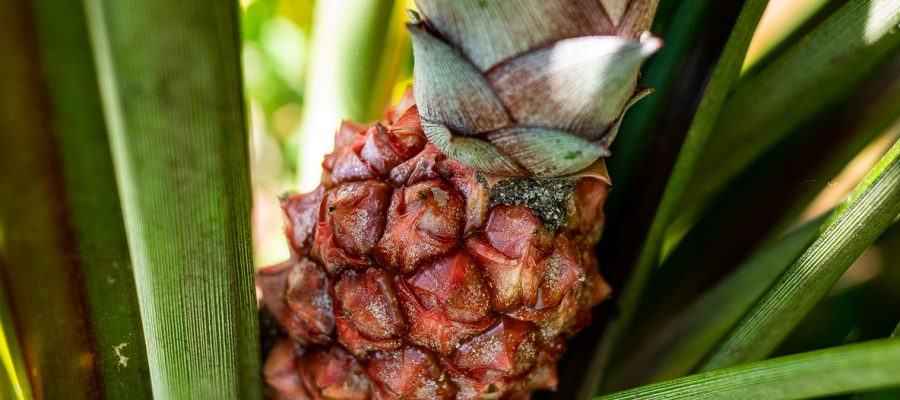Scientific Name: Ananas comosus
Bahasa Indonesia: Nenas
Batak: Honas
Basic Information: The pineapple is a tropical plant with an edible fruit in the family Bromeliaceae. Pineapples may be cultivated from the offset produced at the top of the fruit, possible flowering in five to ten months and fruiting in the following six months. They do not ripen significantly after harvest. The plant usually grows 1-1.5 meters tall. The plant has a short, stocky stem with tough, waxy leaves, which can be solid green, or striped with red, white or cream. The flowers produced are usually small and purple or red in color. When creating its fruit, it usually produces up to 200 flowers. Once it flowers, the individual fruits of the flowers join together to create a multiple fruit. The name pineapple evolved in the 17th century due to its structure and appearance being similar to pine cones. The pineapple originates from the tropical regions of the Americas.
Health Benefits:
- Rich in Antioxidants – high levels of flavonoids and phenolics fight oxidative stress in the body and provide a good source of antioxidants.
- Boosts Immunity & Treats SInus – high levels of vitamin C help reduce illness and boost the immune system. It also helps prevent and treat respiratory illness and reduces the phlegm and mucus build up.
- Aids in Digestion – the presence of bromelain is known to break down proteins, improve digestion, and protect you from constipation, diarrhea, and irritable bowel syndrome.
- Prevents Cancer – pineapple has been directly related to preventing cancers of the mouth, throat, and breast because of its high levels of vitamin A, beta-carotene, bromelain, flavonoids, and manganese.
- Reduces Inflammation – high levels of vitamin C assist in healing wounds and injuries more quickly.
- Reduces Arthritis Pain – pineapple helps to reduce the inflammation of joints and muscles, particularly related to arthritis.
- Aids in Weight Loss – these fruits are low in calories and high in water content and can be part of a weight loss diet when consumed in moderation.
Fun Facts:
- The pineapple is the most economically significant plant in the family Bromeliaceae. According to MARDI, pineapple is the most important tropical fruit after banana and orange
- In 2016, Costa Rica, Brazil, and the Philippines accounted for nearly ⅓ of the world’s population of pineapples
- The fruit of a pineapple is arranged into two interlocking helices, eight in one direction, and 13 in the other, each being a Fibonacci number.
Sources:
https://en.wikipedia.org/wiki/Pineapple
https://plantvillage.psu.edu/topics/pineapple/infos
https://www.organicfacts.net/health-benefits/fruit/pineapples.html

